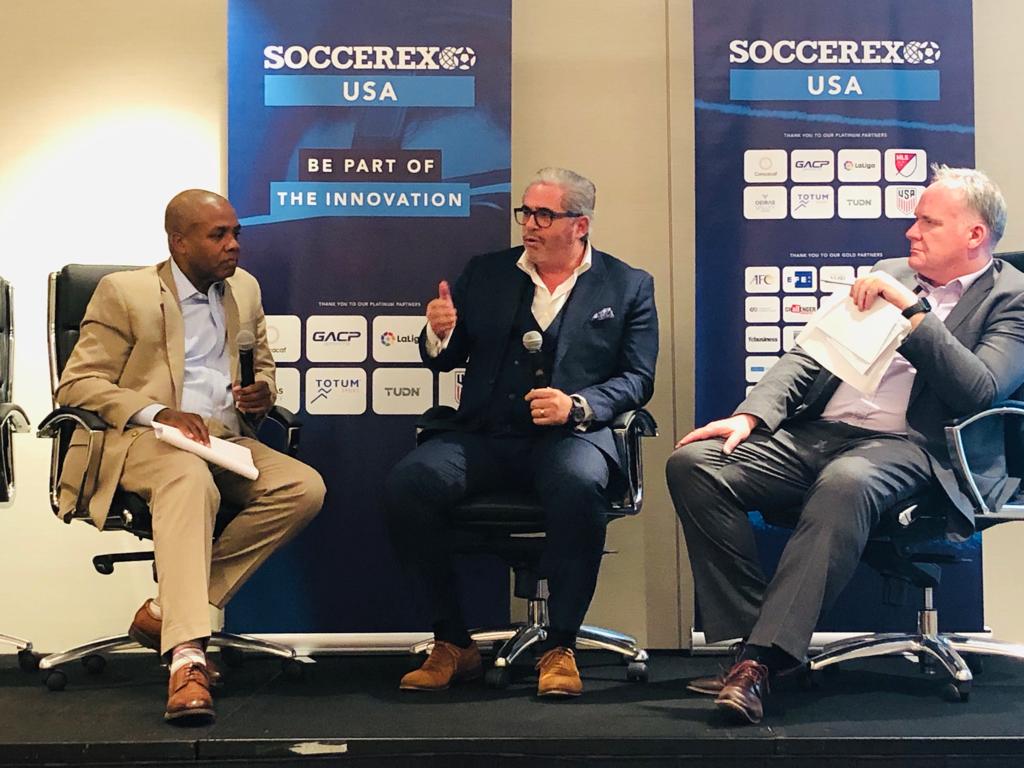By Paul Nicholson in Miami
November 22 – The US is a changed and expanding marketplace for sports betting following deregulation but with the opportunity comes danger and questions over whether it is ready for the flood of new online bookmakers and partnerships. Underpinning fears is the ever-present threat of match-fixing.
Understanding the scale of the illegal betting market and that the US was potentially opening itself up to, and the steps being done to safeguard sport, was the central theme of a panel of sports betting experts at the SIGA Expert Forum, held as part of the Soccerex conference in Miami.
“It is not enough to repeal PASPA. It is not enough to solely focus on the revenue. Without integrity there will be no income streams. The best antidote is prevention. No sport is immune from the threat of match-fixing,” said SIGA CEO Emanuel Macedo de Medeiros.
The enormous size of the legal and illegal sports betting world the US has opened itself up to will force sports and betting bodies to do more to protect sports from the threat of match-fixing in particular. Panellists uniformly emphasised that sports betting integrity could not just be a ‘tick box’ exercise.
Macedo de Medeiros starkly outlined the scale of the problem. The total value of the sports business has been calculated at about $1.2 trillion. Compare this to the estimated $2-3 trillion value of the sports betting global market of which 80% is accounted for in illegal or unregulated markets. The size if the US betting market is put at $150 billion, but expected to grow rapidly post new regulations
The feeling amongst SIGA’s experts was that more had to be done to protect sport and that it needed to be a co-ordinated effort between sport, regulators and the betting industry.
Karl Bennison, former chief of enforcement, Nevada Gaming Control Board, and now an independent consultant, focused on the issue from a US regulator point of view. “Look to other jurisdictions, both national and international, for best practices, solutions or advice. Laws must be effective. Do not let illegal activities fall through the cracks.”
He said there is a lot of activity in the betting integrity area but a lack of cohesion. “Whilst there are a lot of initiatives related to Sports Betting, they are currently all contained. Who is bringing everyone together?” he said. He suggests SIGA could be that body.
It was a point repeated by Madero de Medeiros (pictured centre). “I do not see a cohesive and collaborative united front in the US around the issue of illegal sport betting. SIGA exists to do exactly that: to propel collective action to safeguard the integrity of Sport around a set of Universal Standards,” he said.
The message that was echoed in different ways by panellists eager to see sport and vulnerable athletes protected from matchfixers and criminal gangs who are attracted by a crime that rarely goes punished.
“If the market is strongly regulated and the rules are clear and enforced, then that will deter match-fixers from entering the market,” said Affy Shaikh, head of integrity at Starlizard Integrity Services. He is a strong advocate of education to support the most vulnerable athletes.
While the focus of the wider Soccerex conference in Miami was on football, Tom Brasuell (pictured left), former vice president of community affairs, Major League Baseball, was unequivocal on the challenges.
“Just about everyone is corruptible if there is not a policy in place…Nothing will drive fans away more than match-fixing,” he said.
“From an MLB perspective, youth & kids are the most vulnerable categories when it comes to match-fixing. Bets can be made on Little League Games. Education of young athletes is key to winning this fight.”
Contact the writer of this story at moc.l1734976295labto1734976295ofdlr1734976295owedi1734976295sni@n1734976295osloh1734976295cin.l1734976295uap1734976295

